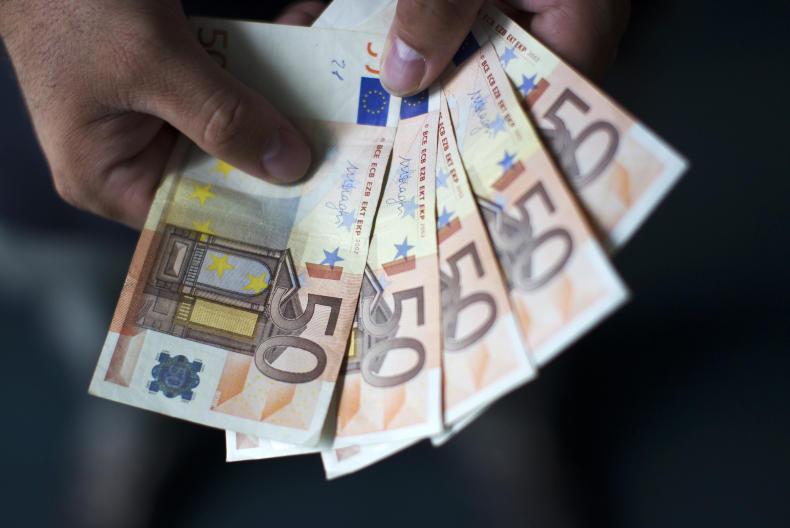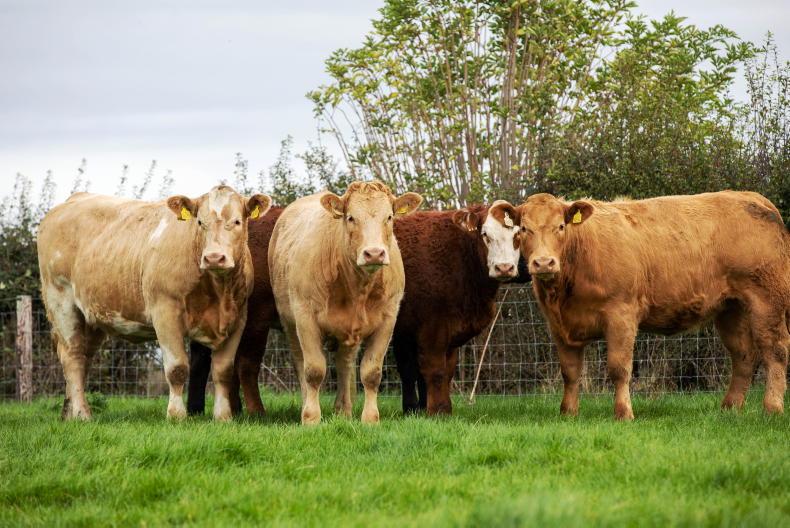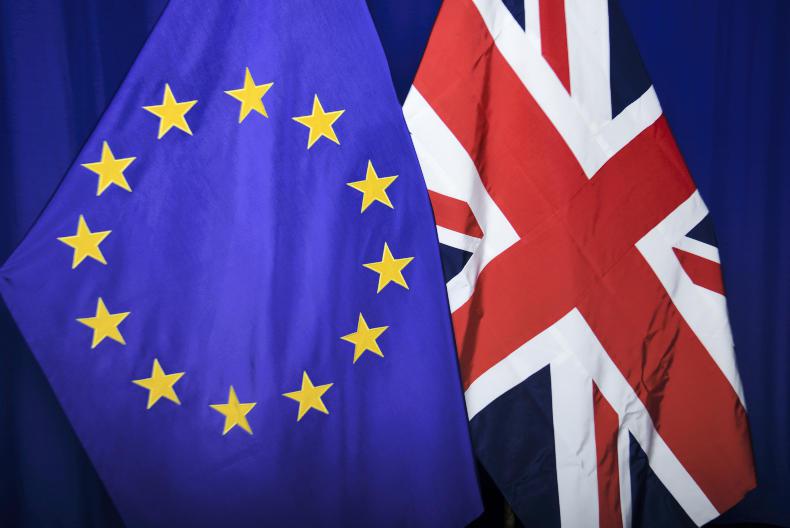New €10m vaccine programme and dairy calf-to-beef scheme
A number of new initiatives were announced for the beef sector, including a €45m allocation for the final year of BDGP and a €40m allocation to the budget for targeted support schemes. A BEEP2 for 2020 has been announced to continue this year’s pilot scheme.
Some €40 will be paid per eligible calf once weights are recorded and submitted to ICBF. A total of €10m has been allocated to a vaccination programme for calves/weanlings, which will be paid at €20/calf if proof of vaccination is provided.
A new dairy calf-to-beef weighing scheme was announced with a €10m budget, worth €10 per animal once weights are recorded and submitted to ICBF.
The rate of stamp duty has been increased on commercial land, including farmland, from 6% to 7.5%. For every €100,000 transaction, it means an extra €1,500 in stamp duty. Irish Farmers Journal analysis shows that it is expected to cost farmers €1.4m.
There has also been an increase in the threshold for the group A – parent to child – Capital Acquisitions Tax (CAT) from €320,000 to €335,000. A rate of 33% tax applies to gifts and inheritances above this threshold.
The earned income tax credit for the self-employed is to increase by €150 to €1,500 in Budget 2020.
This is a 10% increase, but falls short of delivering on the full equalisation with the PAYE sector, which has a tax credit of €1,650.
It falls short of the Government commitment to fully equalise tax rates in the lifetime of this Dáil, but apart from an increase in the carers’ allowance it was the only personal taxation concession in the budget.
The carbon tax is to increase on all fuels from €20/t to €26/t of CO2. This applies immediately on petrol and road diesel and equates to over 2c/l. The tax will not apply to other fuels, including agri(green) diesel until 1 May 2020. Farmers can recoup the cost imposed as a tax allowance, but contractors must bear the cost.
It is the first in a series of increases to bring the carbon tax to €80/t by 2030, a four-fold increase on the pre-Budget level.
€110m for agriculture
in no-deal Brexit
Of a €650m fund set aside for vulnerable sectors, €110m would be available immediately for agriculture. This figure excludes any aid provided by the EU.
There would be €85m to support beef farmers finishing cattle, €14m for the seafood sector, €6m for other livestock farmers and mushrooms, and €5m for the food and drinks industry.
Department receives €51m budget boost
The Department of Agriculture had its budget increased by €51m. There will be a €32m increase in current spending and an extra €19m in capital expenditure. Some €40.1m has been allocated to farmer schemes. There will be an enhanced Beef Environmental Efficiency Pilot (BEEP) with a budget of €20m. TAMS will have an increased budget of €12.1m.There will be €8m available for climate action and agri-environmental schemes.An extra €1m was announced for the Department of Culture, Heritage and Gaeltacht to reopen a scheme to help fund farmers with designated SAC and SPA land.
This falls short of the €10m called for by the IFA.
Some €45m extra was announced for the Nursing Homes Support Scheme (Fair Deal), bringing the total annual budget for the scheme to over €1bn.
There will also be an additional one million homecare hours available next year.
Some €54m was allocated to childcare and early learning through the Early Childhood Care and Education scheme (ECCE) and the previously announced National Childcare Scheme (NCS). The NCS will come into effect at the end of this month but details on how it will impact the farm family’s pocket still remain vague. Free GP care is to be expanded to children under the age of eight and free dental care to children under the age of six.
In short
€103m for forestry.€6m for commercial horticulture.€13.2m for organic farming.€18m for the Sheep Welfare Scheme.Social welfare
100% Christmas bonus social welfare payment.€5 rise in the living alone allowance.€13m for the warmer home scheme.
New €10m vaccine programme and dairy calf-to-beef scheme
A number of new initiatives were announced for the beef sector, including a €45m allocation for the final year of BDGP and a €40m allocation to the budget for targeted support schemes. A BEEP2 for 2020 has been announced to continue this year’s pilot scheme.
Some €40 will be paid per eligible calf once weights are recorded and submitted to ICBF. A total of €10m has been allocated to a vaccination programme for calves/weanlings, which will be paid at €20/calf if proof of vaccination is provided.
A new dairy calf-to-beef weighing scheme was announced with a €10m budget, worth €10 per animal once weights are recorded and submitted to ICBF.
The rate of stamp duty has been increased on commercial land, including farmland, from 6% to 7.5%. For every €100,000 transaction, it means an extra €1,500 in stamp duty. Irish Farmers Journal analysis shows that it is expected to cost farmers €1.4m.
There has also been an increase in the threshold for the group A – parent to child – Capital Acquisitions Tax (CAT) from €320,000 to €335,000. A rate of 33% tax applies to gifts and inheritances above this threshold.
The earned income tax credit for the self-employed is to increase by €150 to €1,500 in Budget 2020.
This is a 10% increase, but falls short of delivering on the full equalisation with the PAYE sector, which has a tax credit of €1,650.
It falls short of the Government commitment to fully equalise tax rates in the lifetime of this Dáil, but apart from an increase in the carers’ allowance it was the only personal taxation concession in the budget.
The carbon tax is to increase on all fuels from €20/t to €26/t of CO2. This applies immediately on petrol and road diesel and equates to over 2c/l. The tax will not apply to other fuels, including agri(green) diesel until 1 May 2020. Farmers can recoup the cost imposed as a tax allowance, but contractors must bear the cost.
It is the first in a series of increases to bring the carbon tax to €80/t by 2030, a four-fold increase on the pre-Budget level.
€110m for agriculture
in no-deal Brexit
Of a €650m fund set aside for vulnerable sectors, €110m would be available immediately for agriculture. This figure excludes any aid provided by the EU.
There would be €85m to support beef farmers finishing cattle, €14m for the seafood sector, €6m for other livestock farmers and mushrooms, and €5m for the food and drinks industry.
Department receives €51m budget boost
The Department of Agriculture had its budget increased by €51m. There will be a €32m increase in current spending and an extra €19m in capital expenditure. Some €40.1m has been allocated to farmer schemes. There will be an enhanced Beef Environmental Efficiency Pilot (BEEP) with a budget of €20m. TAMS will have an increased budget of €12.1m.There will be €8m available for climate action and agri-environmental schemes.An extra €1m was announced for the Department of Culture, Heritage and Gaeltacht to reopen a scheme to help fund farmers with designated SAC and SPA land.
This falls short of the €10m called for by the IFA.
Some €45m extra was announced for the Nursing Homes Support Scheme (Fair Deal), bringing the total annual budget for the scheme to over €1bn.
There will also be an additional one million homecare hours available next year.
Some €54m was allocated to childcare and early learning through the Early Childhood Care and Education scheme (ECCE) and the previously announced National Childcare Scheme (NCS). The NCS will come into effect at the end of this month but details on how it will impact the farm family’s pocket still remain vague. Free GP care is to be expanded to children under the age of eight and free dental care to children under the age of six.
In short
€103m for forestry.€6m for commercial horticulture.€13.2m for organic farming.€18m for the Sheep Welfare Scheme.Social welfare
100% Christmas bonus social welfare payment.€5 rise in the living alone allowance.€13m for the warmer home scheme. 








SHARING OPTIONS